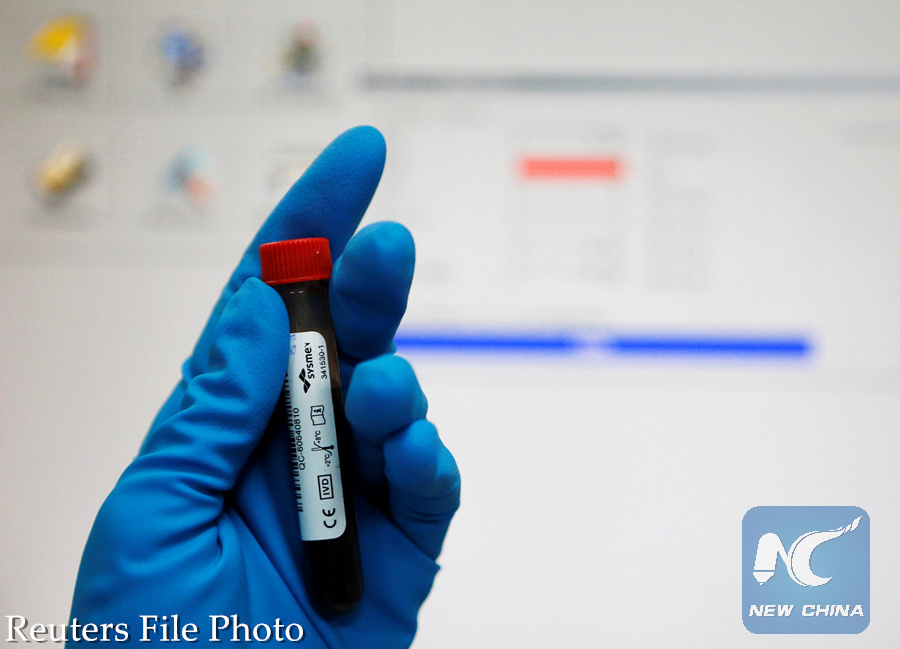
A technician holds a test tube with a blood sample at the Russian anti-doping laboratory in Moscow, Russia, May 24, 2016. (REUTERS PHOTO)
MOSCOW, March 30 (Xinhua) -- The Russian government published an anti-doping order signed by Russian Prime Minister Dmitry Medvedev on Thursday, listing methods and substances banned in sports.
The list includes prohibited substances like anabolic agents, peptide hormones and other drugs, as well as prohibited methods like manipulation of blood and its components, chemical and physical manipulation and gene doping.
"The adopted decision will help reduce the risk of violations of anti-doping rules by athletes, and increase the responsibility of coaches, specialists in sports medicine or in other fields of physical culture and sports," a government statement read.
The Russian legislation envisages criminal liability for coaches or other specialists in sports and sports medicine who attempt to force or tempt an athlete to use doping.
By law, the list of banned substances and methods is defined by the government.
According to the current Russian legislation, punitive measures against doping include fine, dismissal and imprisonment, with measurements of penalty depending on the severity of violations.
A number of Russian athletes were banned from participating in the 2016 Summer Olympic Games and the whole Russian team from taking part in the Paralympic Games following an investigation of the World Anti-Doping Agency (WADA) which disclosed wide use of doping in Russia.

